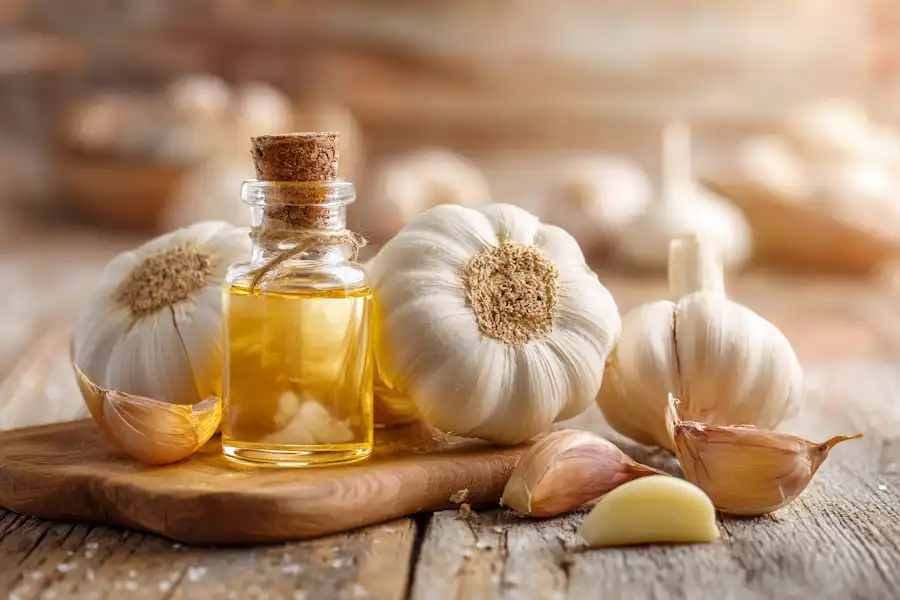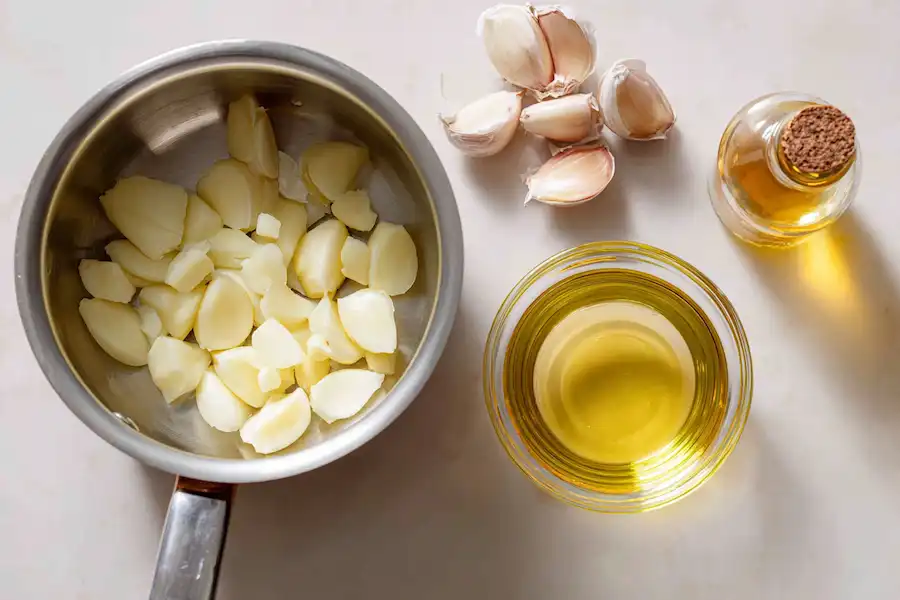Garlic for Ear Health: Natural Relief and Protection
Garlic has been used for centuries as a powerful natural remedy for various health problems, including ear issues. Whether you’re dealing with earaches, mild infections, or excess earwax, garlic offers surprising benefits that can help soothe and protect your ears — all without harsh chemicals.

In this article, you’ll discover the benefits of garlic for your ears, how to use it safely, and what to keep in mind before trying any home remedy.
Why Garlic Is Good for Your Ears
Garlic (Allium sativum) contains compounds like allicin, which is known for its antibacterial, antifungal, antiviral, and anti-inflammatory properties. These natural healing qualities make garlic a gentle yet powerful option for managing common ear problems.
5 Ear Health Benefits of Garlic (Explained)
1. Helps Relieve Ear Infections
Garlic’s antibacterial action can help fight the bacteria responsible for outer and middle ear infections. It doesn’t replace antibiotics in severe cases, but it can reduce the intensity of mild infections naturally.
2. Reduces Inflammation and Pain
Garlic oil contains sulfur compounds that act as natural pain relievers and reduce swelling in the ear canal — especially helpful for earaches related to colds or sinus issues.
3. Loosens and Softens Earwax
When used in oil form, garlic can soften hardened earwax, making it easier to remove without causing damage to the eardrum or canal.
4. Fights Fungal Infections
In cases where fungal overgrowth (like Candida) is the culprit behind itching or discomfort in the ears, garlic’s antifungal properties can be a helpful remedy.
5. Supports Overall Ear Hygiene
Garlic oil can help keep the ear canal clear of microbes and maintain a healthy environment that’s less prone to infections or buildup.
How to Use Garlic for Your Ears
There are two safe and effective ways to use garlic for ear health: garlic-infused oil and warm garlic compresses.

Method 1: Garlic-Infused Oil Drops
What You’ll Need:
- 1–2 cloves of fresh garlic
- 2 tablespoons of olive oil (or coconut oil)
- A small clean jar or bottle
- A dropper (optional)
- Cheesecloth or fine strainer
Steps:
- Peel and lightly crush the garlic cloves.
- Heat the oil on low for about 5–10 minutes, then add the garlic.
- Let the garlic simmer gently (do NOT fry it) until it becomes slightly golden.
- Remove from heat and allow the oil to cool.
- Strain the oil and store it in a clean glass container.
- When cooled to skin temperature, use a clean dropper to place 1–2 drops into the affected ear.
- Keep the head tilted for 5–10 minutes, then wipe away any excess oil.
Use once or twice daily for up to 3 days.
Method 2: Warm Garlic Compress (Without Oil)
What You’ll Need:
- 1 garlic clove
- A small piece of gauze or cloth
- A clean spoon
- A warm towel
Steps:
- Peel a garlic clove and slightly crush it with the back of a spoon.
- Wrap it in gauze (like a tiny garlic pouch).
- Warm the compress by placing it near a warm towel (not directly hot).
- Place the wrapped garlic nearthe opening of the ear, not inside.
- Let it sit for 10–15 minutes while lying down.
This method is helpful when you don’t want to insert oil into the ear directly.
Important Safety Tips
- Do notuse garlic remedies if you suspect a ruptured eardrum (symptoms: fluid leaking from the ear, severe pain, or hearing loss).
- Never insert garlic cloves directlyinto the ear canal — it can cause irritation or even get stuck.
- Always make sure garlic oil is lukewarm, not hot.
- If symptoms persist or worsen, consult a medical professional.

Garlic is more than just a flavorful kitchen ingredient — it’s a natural ear remedy backed by traditional use and science. Thanks to its antibacterial, anti-inflammatory, and soothing effects, garlic oil and warm compresses can help with earaches, infections, and ear hygiene.
However, like any natural treatment, it should be used carefully and responsibly. When in doubt, always seek medical advice — especially for children, chronic conditions, or severe symptoms.